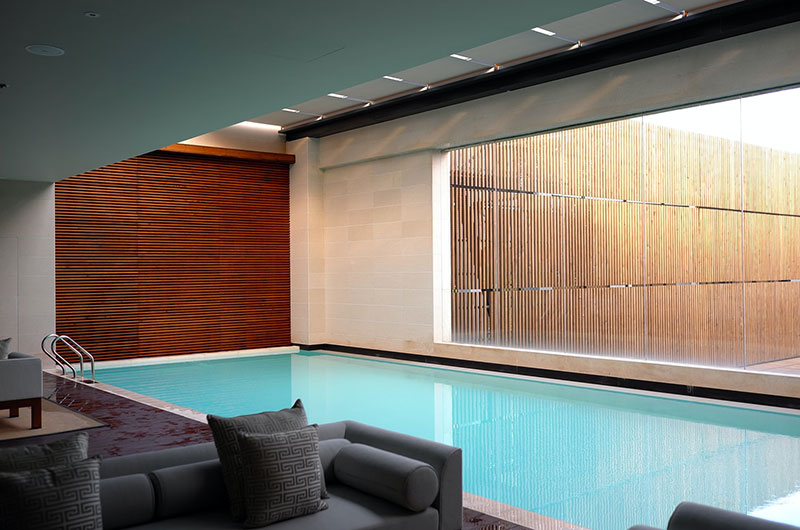Advertisement
The question of whether a pool heat pump will work indoors is something that deserves a more detailed response so that you can understand what is involved and what your best indoor pool heating options are.
Let’s take a look at what you need to know about swimming pool heating options and how to choose the right option depending on whether you are heating an indoor or outdoor pool.
How a heat pump heats your pool
Starting with the basics, it would be a good idea to have an idea of how a pool heat pump works.
The basic concept of a heat pump is that it is designed to use heat in the air and transfer it to your water. The process involves a system refrigerant sucking heat out of the air so that it becomes warmer.
The temperature of the air that eventually leaves your heating system is usually anywhere between 8-12 degrees cooler than when it entered it.
Explaining the process will help you to appreciate that if you had a heat pump installed indoors it would end up recirculating the same air because it is in a closed environment. With no access to fresh air, it would mean that air became cooler and eventually shut down as a result of being unable to draw the right amount of heat from the surrounding air.
In simple terms, using a swimming pool heat pump in an indoor setting would cause it to malfunction and close down as a result of being unable to draw a sufficient amount of air from its surrounding.
You will be impairing the operation of your heat pump if you put it in an environment where it is not designed to operate. It is intended to use the air circulating outside to heat your pool and can’t be expected to do the same job indoors.
Is duct work a viable solution?
You might be tempted to consider a way of delivering the fresh air that your heat pump needs by using a ducting system.
Although there is the potential to attach duct work to the unit as a way of bringing in the fresh air needed you should be aware that the fans used to move the air through the system are not designed to work when there is notable resistance to air flow.
The scenario described where there is resistance to air flow is precisely what you will get if you attempt to resolve the situation with duct work.
You will inevitably suffer a poorer performance from your heat pump in these circumstances and it could eventually lead to component failure. Put simply, using duct work as a way of moving air around a heat pump that is designed for outdoor use will not prove viable.
It is always best to get professional assistance when it comes to creating the perfect environment and setting up your heat pump system for maximum efficiency.
The bottom line is that an outdoor swimming pool heat pump is not designed to work indoors.

